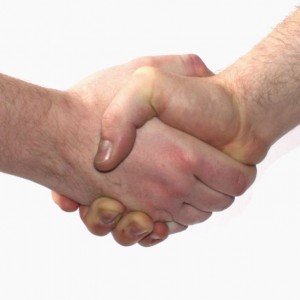In the infamous ’90s movie, ‘Trainspotting’, Ewan McGregor enters a club in hope of finding a one night stand. Kelly McDonald, with her glossy silver dress and insolent behaviour, seems to be the perfect girl for the night ahead. After a rather peculiar discussion, they both end up in her apartment for some more personal moments.

What follows that night is mostly problems between the two, but they try to keep their relationship on a certain, neither friends nor enemies level. In other words, we could consider them to be casual lovers.
If we take a closer look at some of the incidents that have occurred between the most popular left-wing parties in Australia over the last decade, we can see how the aforementioned scene has similarities to our modern political climate.
Back in 2010, when Julia Gillard approached the Greens to form the present Federal Government of Australia, she obviously didn’t believe all the voices that were warning her of a suicidal move. The results from polls may or may not justify her critics so far as no one can assertively claim what type of relationship exists between the Labor and the Greens.
Last week, in a forum at La Trobe University for the Ideas and Society Program, Robert Manne, Professor of Politics, said that, ‘if there is a future for the Left parties in Australia, it relies on the relationship between the Labor and the Greens’.
However, both his guests agreed that this relationship is not a ‘mate’s’ one.
Andrew Leigh, federal member for Fraser, declared that the connection between the Labor and the Greens ‘is rather useful in order to pass legislation, but there are great differences between them on major issues and generally in attitude’.
Adam Bandt, federal member for Melbourne, couldn’t agree more, saying that ‘it is not a coalition relationship.’ Although he accepted that he wouldn’t cooperate with Tony Abbott in order to form government in the future, he stated that the Greens’ current cooperation with Labor was strictly professional in nature.
Additionally, some other incidents have acted to put their relationship in question. During the 2004 federal election, Labor chose to support the Family First Party in their second preference, instead of the Greens. As a result Steve Fielding won a seat in Victoria’s Senate even though he was more than 150,000 votes back from the Greens during the first preference.
A similar scenario took place during the most recent state elections, with Labor giving their second preference again to Family First, and Jennifer Kanis claiming victory, despite the Greens’ Kathy Oak achieving a five per cent swing against Labor.
Similarly, in regards to major issues, such as asylum seekers, Labor and the Greens are standing on opposite sides of the debate, with Labor ignoring their partners in the government.
The most resent juxtaposition between these two parties was witnessed last Wednesday when the Federal government decided not to pay to shut down some of Australia’s dirtiest coal-fired power plants, leaving the Greens outraged over the broken promise.
On the other hand, the Greens decided not to curb their behaviour when they stopped the first legislation on climate change and, as a result, set off a chain of events that has given Labor grief. The legislation finally came to fruition two years later, arousing questions of why we should support a Green party that may have put their ego above their ideals of a better environment for Australia.
On the issue of gay marriage, the Greens decided to adopt a more radical agenda and ‘steal’ some supporters from a government that many believe has abandoned its origins and political base.
The questions remain the same though. Is our current government an uneasy coalition who are partners only when they can reach common ground on certain issue?
Both parties have their own views on key policy issues and present themselves in different ways. With the Federal election fast approaching, I anticipate that there will be less animosity between them.
As Gury Rundle suggests, ‘turning the Greens into a political enemy demands an extraordinary degree of fabrication,’ and I don’t think that with the current polls, that it is in Labor’s best interests to damage a relationship that might again be crucial if they are to stay in power.
In the end, they may be neither friends nor enemies but more like casual lovers. They meet each other, find some things in common, share an exciting experience and after that go their separate ways. No hard feelings.
Ody Kripotos is a Master of Global Communications student at La Trobe University and is a staff writer for upstart. You can follow him on Twitter: @noseriousreasons






